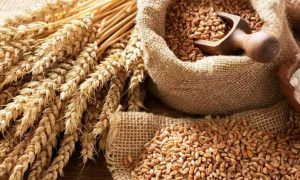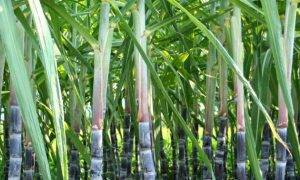KISUMU, Kenya, Sep 26 — Sugarcane farmers within the Nyando Sugarbelt have proposed a two-year delay before the roll out of the Quality-Based Cane Payment System (QBCPS).

Farmers in Kisumu expressed optimism about the proposed QBCPS Regulations 2023, which would base sugarcane payments on sucrose content rather than tonnage. Atyang Atyang, a farmer from Muhoroni, praised the new system for protecting farmers from exploitation by millers. However, Jane Chirchir from Chemelil suggested delaying implementation by two years to allow farmers to prepare.
The farmers converged in Kisumu on Thursday during a public participation on the QBCPS Regulations 2023.
The farmers however expressed optimism for the new method of payments for their cane based on the sucrose content.
Atyang Atyang, a farmer in Muhoroni, said the regulations will cushion farmers from exploitation by millers.
He said the paradigm shift in the payments will help farmers to value add their cane.
“Millers are stealing from us, the new method will absolutely address that concern,” he said.
Jane Chirchir, a farmer in Chemelil, however proposed delayed implementation.
“Give us two years, so that we prepare our cane ready for sucrose content payments,” she said.
Chirchir said farmers are ready to embrace the new changes but cautioned against the rush to implement the new payment method.
Advertisement. Scroll to continue reading.
Sucrose content based pricing
Richard Magero, Deputy Director (Technical and Advisory Services) at Agriculture and Food Authority (AFA), who took the farmers through the regulations, said the government has developed a number of cane varieties with high sucrose content.
Magero said there are a total of twenty-seven locally bread cane varieties, urging farmers to take advantage and plant the varieties.
“These varieties are disease resistant, early maturing with a high sucrose content,” he said.
He further noted that the Sugar Act 2001 required determination of cane prices based on the sucrose content.
However, Magero said lack of facilities has made it impossible to implement the Act.
“We have two pilot projects of the Sugar Testing Units (STU) in Nzoia and SonySugar mills,” he announced.
He noted that nine other STUs were operational in government and private mills across the country.
“The facilities are now set and once the regulations goes through then we roll out after 6 months of the gazettment,” he said.
He challenged farmers to employ better practices in the farm so as to be able to yield good sucrose content.
Advertisement. Scroll to continue reading.
“Use of tonnage to pay farmers has its bad side, but for sucrose content, hard working farmers will reap their sweat,” he said.
Farmer awareness
Farmers, however, called for further senzitization on the new model and how best to produce cane which has high sucrose content.
Raj Simba, a large scale farmer, urged officials to familiarise farmers with the new system before the transition from tonnage to sucrose content payment.
Simba said he has visited a number of countries implementing the system thus the need to do capacity building of the farmers.
“Our farmers must be on board. Let AFA take us through the system so that no farmer is left behind,” he said.
Magero said no miller shall operate without a STUs and any miller who shall contravene the regulation will commit an offence.
“If convicted, they will be liable to a fine not exceeding Sh. 5 million or to imprisonment for a period not exceeding one year, or to both,” he said.
He said the Sugar Pricing Committee, tasked with determining the cost of cane, may contract the services of an expert to conduct sugarcane testing services.
Source Link : https://www.capitalfm.co.ke/news/2024/09/cane-farmers-in-nyando-propose-to-delay-quality-based-payment-system/















